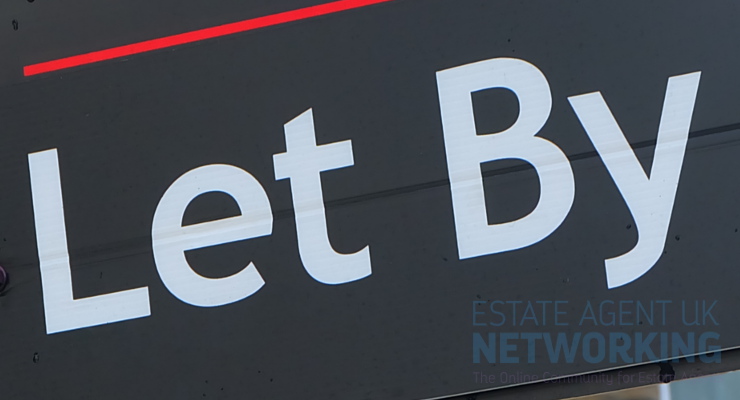How to Disclose Undeclared Rental Income
For any individual who finds they may have undeclared rental income, it’s imperative to get it paid off as quickly as possible.
To prevent tax evasion by residential landlords, HMRC takes time to identify and contact landlords who may owe tax on rental income.
As a result, an increasing number of people are coming forward to declare rental income previously left undeclared.
Declaring rental income voluntarily will often allow landlords to settle their tax affairs on the most favourable terms.
However, if HMRC investigates a landlord, it’s likely they’ll pay higher penalties and may even face criminal prosecution – meaning it’s in landlord’s best interests to come forward.
Read on for some expert advice from chartered tax advisers on how landlords may disclose undeclared rental income.
How would HMRC know about my rental income?
HMRC employs a number of tactics to seek out landlords who might not have paid what they owe.
A very sophisticated computer programme with access to a wide range of personal and financial information is often used to collate information from various sources.
The system has access to databases including the Electoral Roll and Land Registry, and it can match records to tax returns to help identify discrepancies in a matter of seconds.
HMRC can also obtain information from third parties, including estate and letting agents. HMRC contacts agents instructing them to forward details of any landlords on their books who are receiving rental income.
Any discrepancy between the information they receive and the tax returns they have on record is likely to trigger an investigation – meaning a landlord can expect to receive a letter from HMRC on their doormat.
Some common mistakes and misconceptions
Sometimes unpaid or underpaid tax is the result of a simple mistake or misunderstanding of the rules. Here are some common misconceptions:
- “I thought my managing agent looked after my taxes”
- “My rental property is abroad so I didn’t declare it in the UK”
- “My property is abroad and I paid tax in that country instead of the UK”
- “I’m on PAYE and thought my rental income was taxed through the payroll”
- “I didn’t declare the sale of my second home because it wasn’t rented out”
- “We own a property as a married couple or civil partners and split the income and gains however we want to”
- “I didn’t declare my rental income because my property’s making a loss”
Ultimately, it it the responsibility of the landlord to ensure they are paying the required amount of tax on their property.
If a landlord feels they’ve made a mistake, they should disclose their undeclared rental income and settle their tax bill quickly to avoid paying higher penalties than they have to.
What is the Let Property Campaign?
As well as seeking out and investigating wayward landlords, HRMC regularly runs ‘honesty’ campaigns offering a tax amnesty to landlords who come forward voluntarily.
The Let Property Campaign is HRMC’s current honesty campaign. It allows landlords to disclose undeclared rental income in a simple way and receive favourable terms.
If landlords come forward of their own volition through the Let Property Campaign, HMRC can often be more lenient, with penalties as low as 0%.
HMRC also sends out letters prompting landlords to use the Let Property Campaign.
Typically, landlords who come forward only after receiving a letter will be deemed as “prompted” and will be eligible to be charged higher penalties.
Penalties are however, also affected by the seriousness of the landlord’s undeclared rental income.
Who can use the Let Property Campaign?
The Let Property Campaign is open to all residential landlords with undisclosed taxes, including:
- Landlords with single rentals
- Landlords with multiple properties
- Landlords who rent out a room in their main home for more than the Rent a Room Scheme threshold
- Specialist landlords with student or workforce rentals
- Landlords with holiday lettings
- Landlords who live abroad or intend to live abroad for more than six months and rent out a property in the UK, as they may still be liable to pay UK tax
The campaign is not open to landlords who rent out non-residential properties like shops, garages and lock-ups.
How to disclose undeclared rental income
If a landlord has undeclared rental income or has received a letter from HMRC, the best thing to do is approach their tax adviser – or consider appointing one if they don’t yet have one.
A tax adviser can use their expertise to help navigate the Let Property Campaign, minimise penalties and interest and negotiate affordable payment terms. They will guide landlords through the following steps:
- Notifying HMRC that the landlord wants to take part in the Let Property Campaign
- Disclosing all income, gains, tax and duties they haven’t previously told HMRC about
- Making a formal offer
- Paying what is owed
- Providing more information should HMRC asks for it
For any landlords thinking about disclosing undeclared rental income – this may seem like a daunting prospect, but is strongly advised and will prove to be a financially beneficial decision in the long run.









